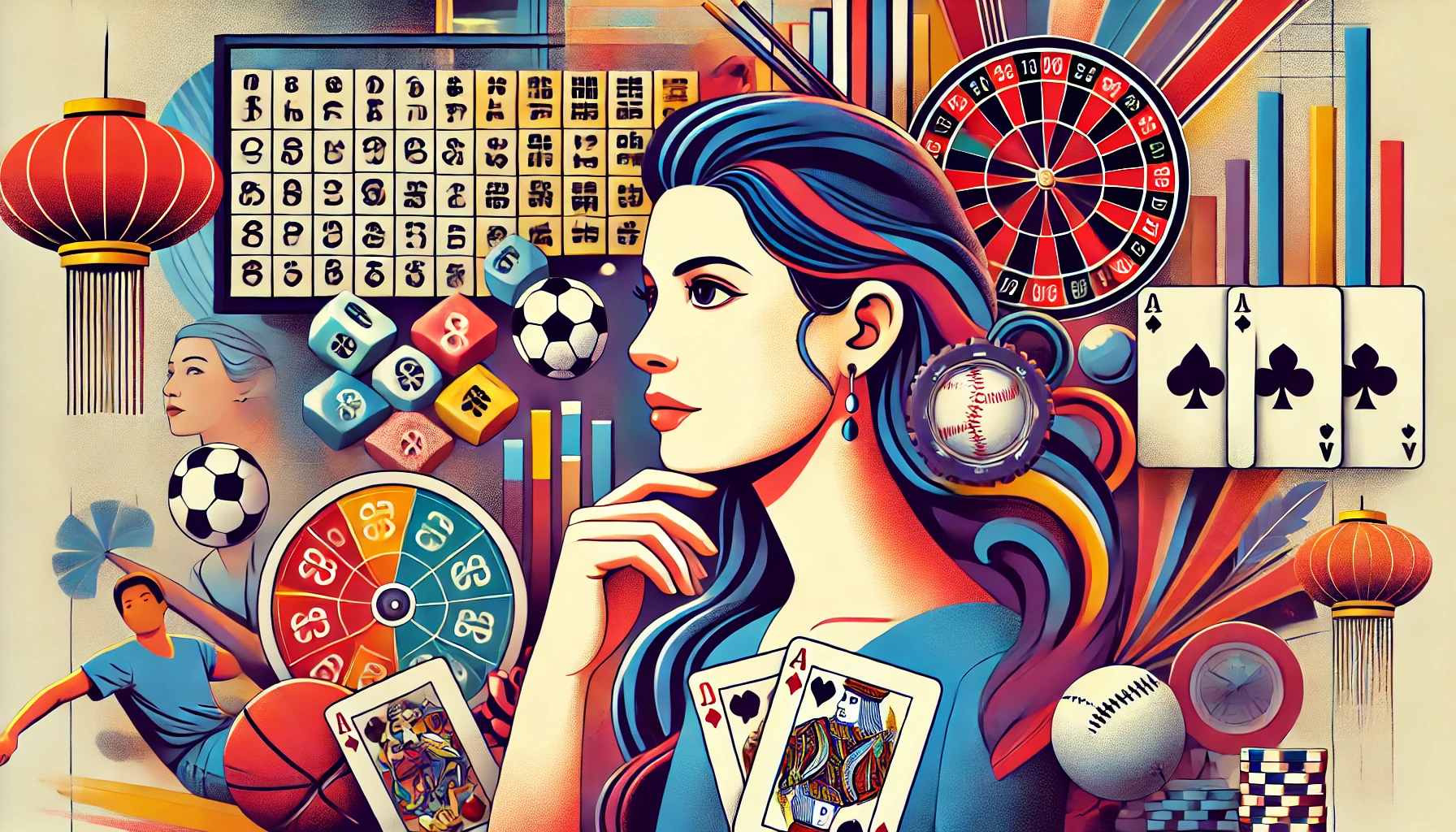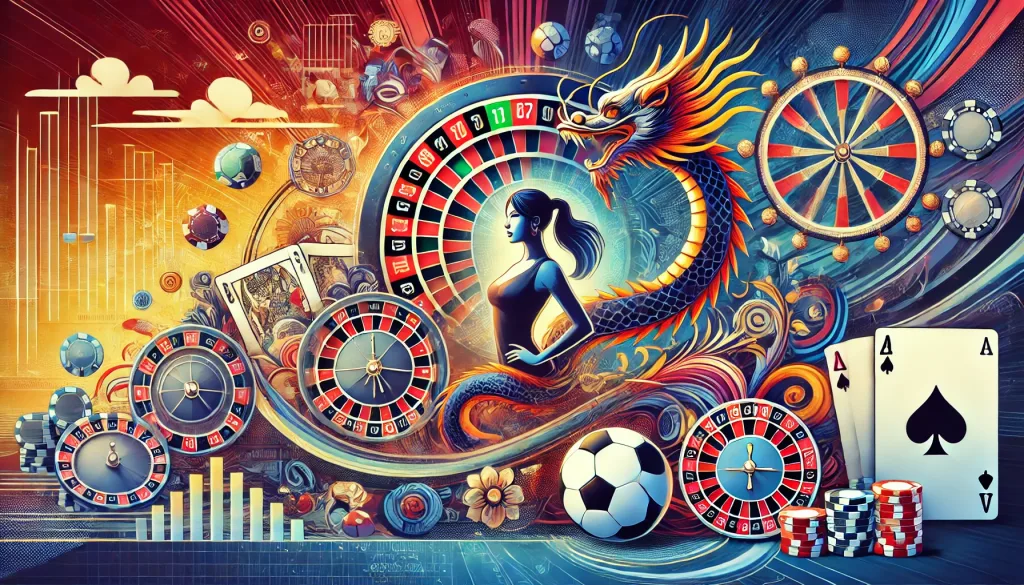The Impact of Cultural Differences on Gambling Preferences

The way individuals engage with gambling is deeply influenced by cultural norms and traditions. Across the globe, gambling preferences vary, reflecting the social, economic, and historical contexts of each region. This article explores how cultural nuances shape gambling behaviours and preferences, offering a comprehensive look at three diverse regions: Asia, Europe, and North America.
Asia: Gambling as a Social and Cultural Tradition
In Asia, gambling is often intertwined with long-standing traditions and social interactions. Many Asian cultures, particularly in China, associate gambling with luck and fortune. Mahjong, for instance, is not just a game but a symbol of family gatherings, especially during the Lunar New Year. Similarly, betting on cricket in India has become a cultural phenomenon, blending sports enthusiasm with gambling excitement.
Asian gambling culture is also significantly influenced by historical and religious beliefs. For example, certain numbers are considered lucky or unlucky based on Chinese numerology, directly impacting games like Pai Gow or traditional lotteries. This deeply rooted belief system creates a unique layer of cultural attachment to gambling, making it more than just a pastime.
Government policies also play a vital role in shaping gambling practices in Asia. Countries like Japan and South Korea have stringent regulations, which often drive players to explore alternative gambling options, such as pachinko or online platforms. This regulatory environment highlights the tension between cultural acceptance and legal restrictions in the region.
The Role of Casinos in Asian Tourism
Casinos such as those in Macau are central to gambling culture in Asia. Often dubbed the “Las Vegas of the East,” Macau’s casino industry generates billions annually, driven largely by high rollers from mainland China. The region’s success is not just about gambling but also about integrating luxury, entertainment, and cultural identity into the casino experience.
Tourism in Macau and Singapore is heavily tied to their casino industries. These destinations are not only gambling hubs but also offer cultural landmarks, fine dining, and family-friendly attractions, appealing to a broad audience. This integration of gambling with other aspects of tourism ensures sustained growth in these regions.
Europe: Regulation and Recreational Gambling
Europe boasts one of the most regulated gambling markets globally. Gambling here is often seen as a recreational activity rather than a high-stakes venture. Countries like the UK and Malta have developed robust frameworks that balance entertainment with responsible gambling. Lotteries are particularly popular, often tied to charitable causes or national heritage.
The diversity of gambling preferences across Europe stems from its rich cultural tapestry. For example, poker is highly popular in Western Europe, while Eastern European nations often favour sports betting. This regional variation highlights the influence of local traditions and economic factors on gambling habits.
Additionally, Europe has been at the forefront of promoting responsible gambling. Initiatives such as self-exclusion schemes and public awareness campaigns ensure that gambling remains a safe and enjoyable activity. The focus on player protection has set a benchmark for other regions to follow.
Online Gambling in Europe
The rise of online gambling has significantly impacted Europe’s gambling landscape. Nations like Sweden and Denmark lead in online casino popularity due to high internet penetration and efficient regulation. Platforms often localise content to suit cultural preferences, such as language-specific games and regionally themed slot machines.
Another contributing factor to the growth of online gambling in Europe is the convenience it offers. Players can access their favourite games from the comfort of their homes, making it a preferred choice for many. Innovations like live dealer games and mobile apps further enhance the online gambling experience, attracting a younger demographic.

North America: The Rise of Sports Betting
In North America, sports betting dominates the gambling industry. With the legalisation of sports betting in many US states, this form of gambling has become a cultural staple, often linked with major leagues like the NFL and NBA. Canada’s approach, on the other hand, combines government-run lotteries with emerging online platforms.
The gambling culture in North America is also shaped by significant media influence. High-profile advertisements during major sports events and partnerships between leagues and betting platforms have normalised gambling as part of the sports experience. This fusion of sports and gambling has led to exponential growth in the industry.
Moreover, the economic impact of gambling in North America is profound. Casinos and sportsbooks contribute billions in revenue, creating jobs and funding public projects. This economic significance ensures that gambling remains a vital part of North American culture.
Casinos and Indigenous Influence
Native American casinos hold a unique place in North America’s gambling ecosystem. These establishments, often located on tribal lands, are more than just gaming hubs; they serve as cultural centres and significant contributors to local economies.
These casinos also highlight the complex interplay between history and modernity. While providing financial benefits to Indigenous communities, they also preserve cultural heritage through themed designs and traditional performances. This dual role makes Native American casinos a distinctive feature of the North American gambling landscape.
Understanding how cultural nuances influence gambling preferences provides insight into the global diversity of the industry. Recognising these differences is crucial for operators aiming to cater to an international audience, ensuring that gambling remains a culturally inclusive form of entertainment.
